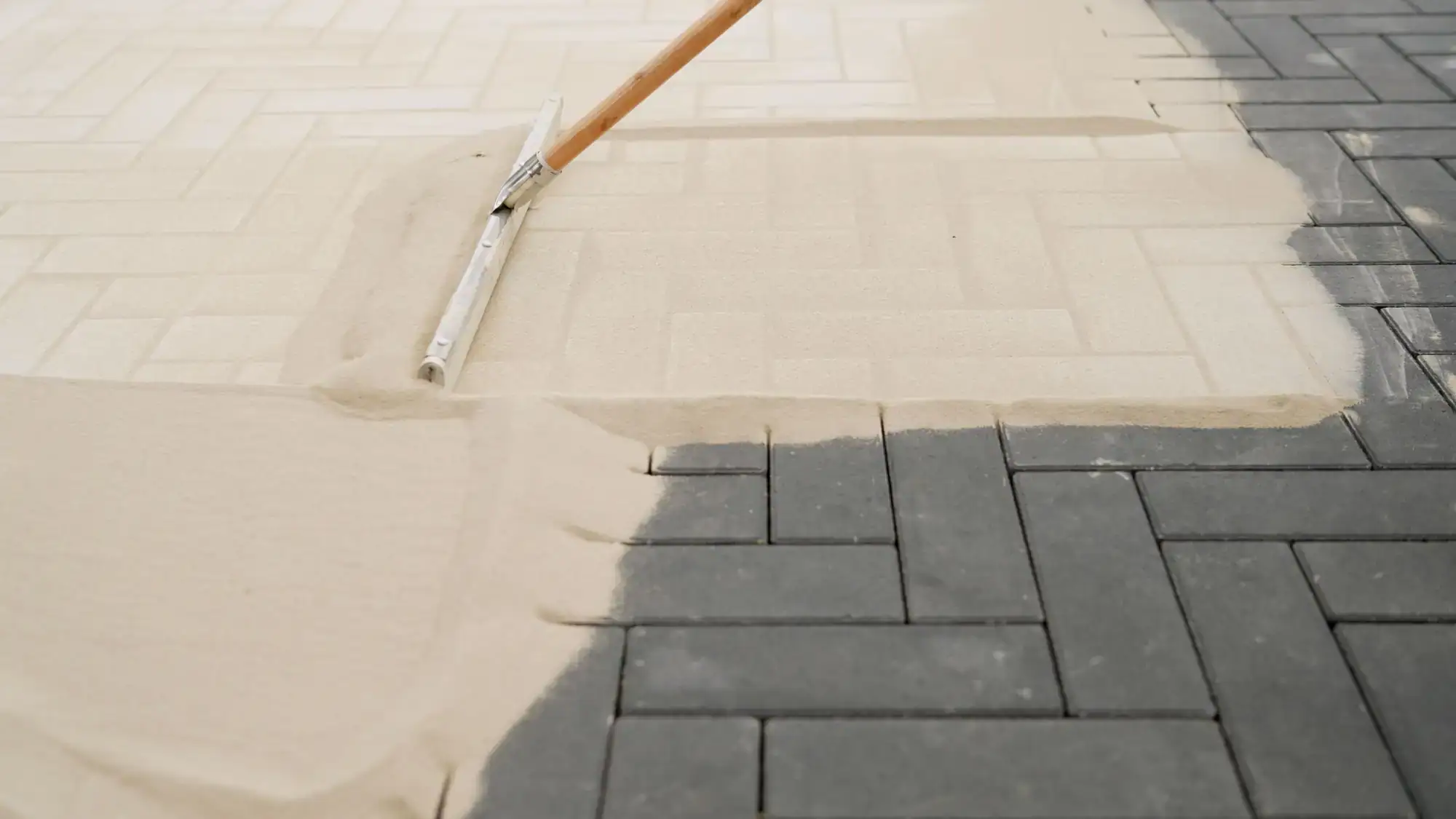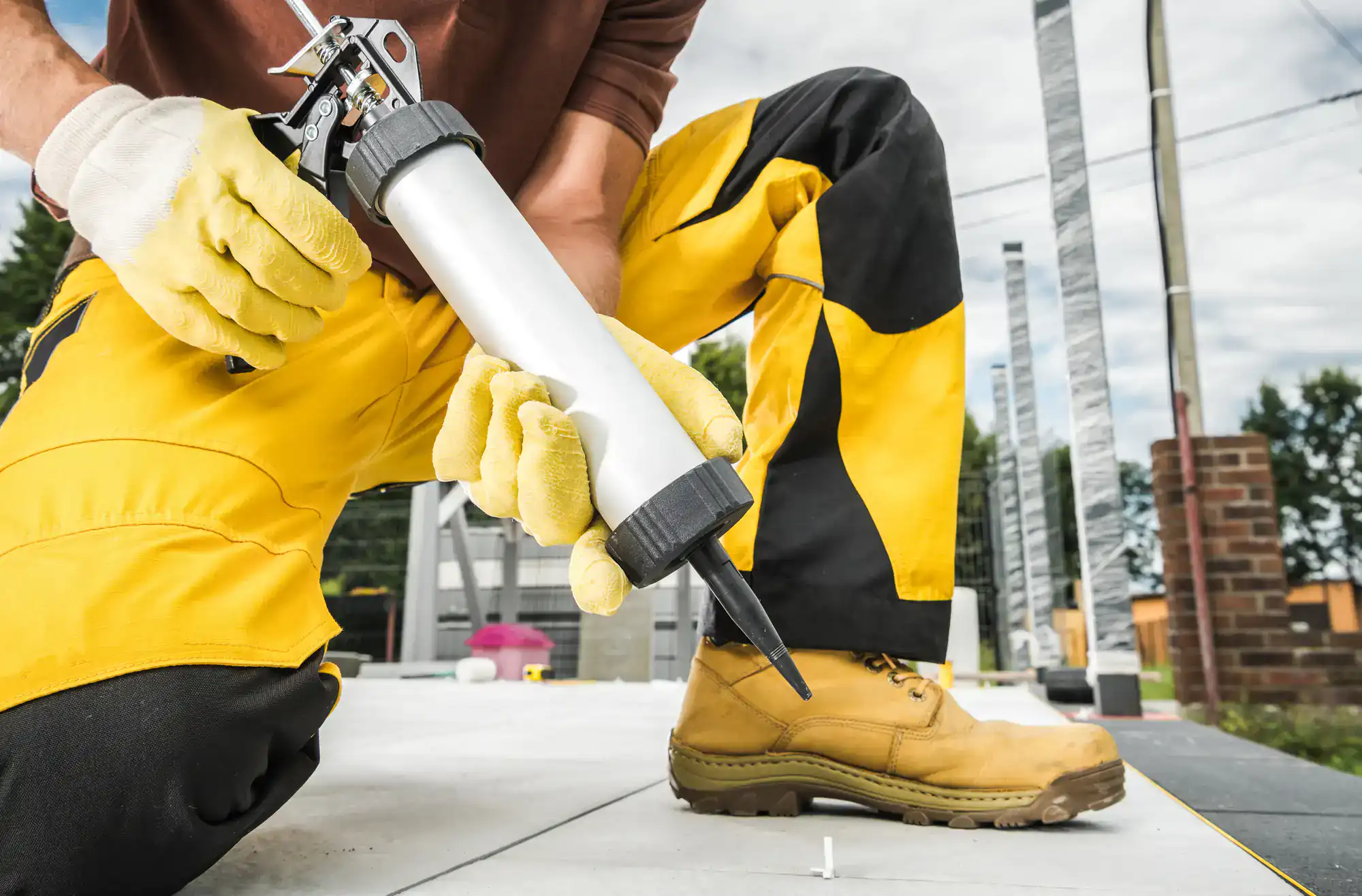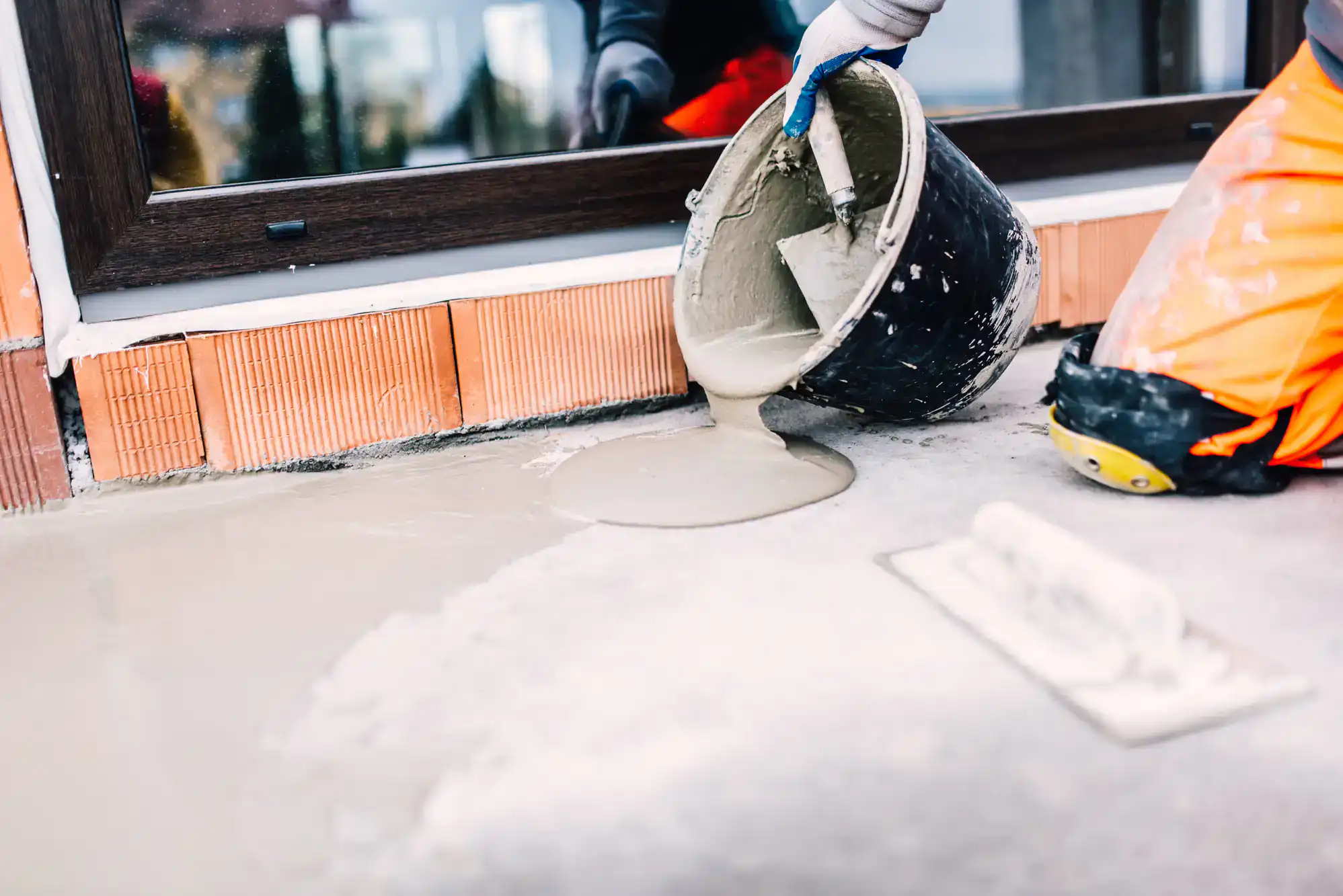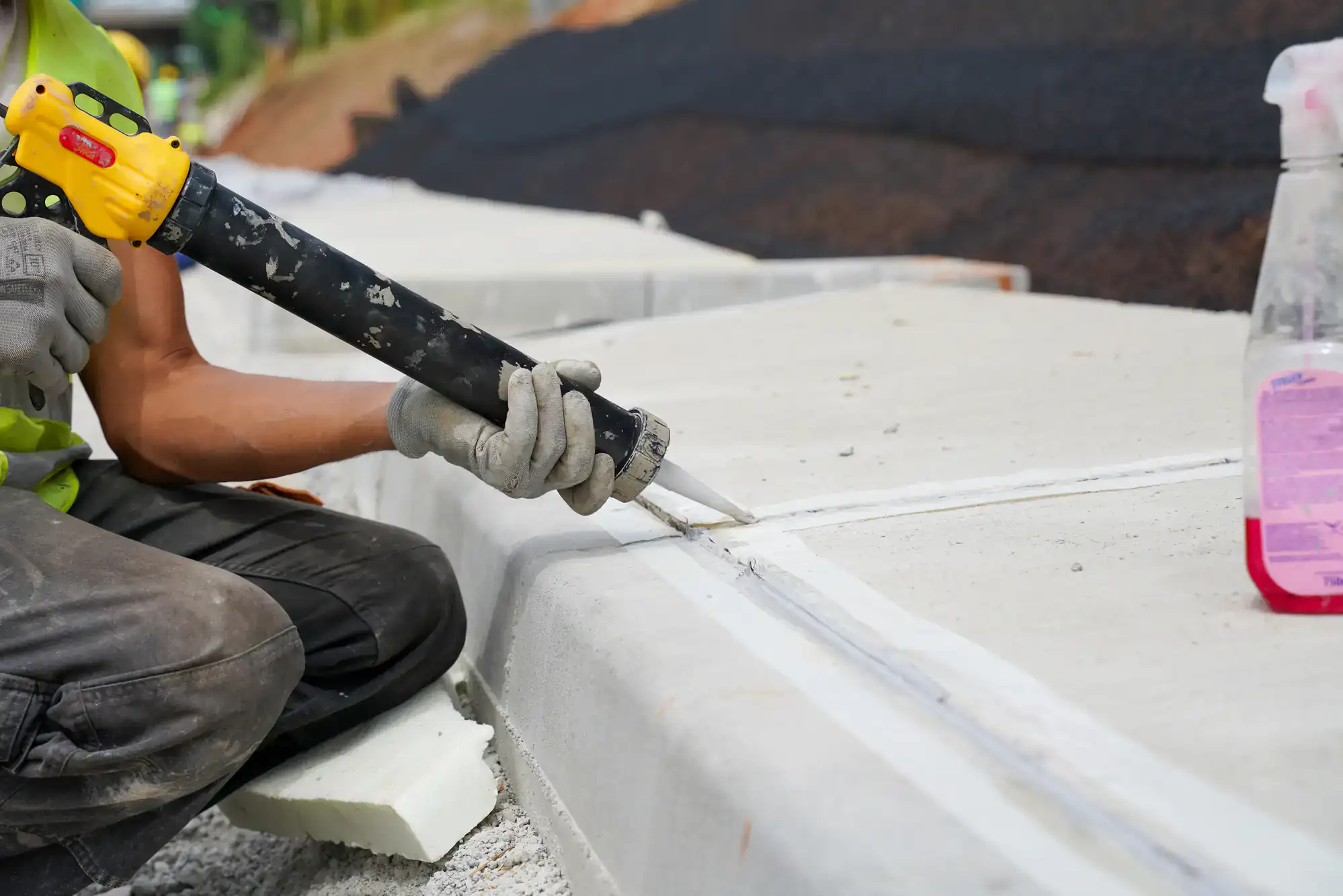Concrete Sealing in Manalapan, FL
Stop Moisture Before It Destroys Your Floors

Hear from Our Customers

Moisture Control Flooring Manalapan
You get concrete that stands up to Florida’s relentless moisture instead of absorbing it like a sponge. Your floors stay clean, safe, and functional without the constant worry of mold, mildew, or structural damage.
We create heavy-duty protective barriers that block moisture from penetrating your concrete while allowing proper vapor transmission. This means your investment stays protected year after year, even when humidity levels spike during Florida’s wet season.
No more dealing with damp spots, musty odors, or coating failures that cost you time and money. Just reliable, long-lasting protection that works with Florida’s climate instead of fighting against it.
Commercial Flooring Contractor Manalapan
We’ve been solving concrete moisture issues for commercial and industrial clients throughout South Florida. We’re not just another flooring company – we’re specialists who understand exactly why standard sealers fail in this climate.
While other contractors guess at solutions, we use professional-grade testing equipment to measure moisture levels before we start. We follow ASTM standards for calcium chloride testing and relative humidity probes because guesswork leads to failures.
Manalapan’s proximity to the coast means your concrete faces unique challenges from salt air, high humidity, and temperature swings. We’ve developed our processes specifically for these conditions, using moisture-tolerant systems that bond properly even when vapor is present.

Long-lasting Flooring Solutions Process
First, we test your concrete’s moisture levels using professional equipment. No guessing, no shortcuts – just accurate data that tells us exactly what your floor needs. This step prevents the coating failures that happen when contractors skip proper testing.
Next, we prepare the surface using diamond grinding to remove contaminants and create the proper profile for sealer penetration. This isn’t optional in Florida’s climate – it’s the difference between a sealer that lasts and one that peels off in months.
Then we apply moisture-tolerant sealing systems designed specifically for high-humidity environments. These aren’t standard sealers that trap moisture and fail. They’re engineered to work with Florida’s conditions, creating lasting protection that actually performs.
Finally, we verify the cure and provide you with maintenance guidelines that keep your floors protected long-term. You get documentation of what was done and what to expect going forward.

Ready to get started?
Flooring Services Manalapan Florida
Your concrete sealing project includes professional moisture testing, surface preparation, and application of commercial-grade sealing systems. We handle everything from initial assessment to final inspection, ensuring your floors meet the demanding requirements of Florida’s industrial and commercial environments.
In Manalapan’s coastal climate, standard approaches don’t work. We use specialized equipment to control humidity during application and select sealers that can handle the area’s unique challenges. This includes salt air exposure, temperature fluctuations, and the constant moisture pressure that comes with being near the water.
You also get proper documentation of moisture levels, application conditions, and expected performance. This isn’t just paperwork – it’s proof that the work was done right and gives you recourse if issues arise. Most importantly, you get floors that actually stay sealed instead of requiring constant repairs and reapplication.

How long does concrete sealing take to cure in Florida’s humidity?
In Florida’s climate, concrete sealing takes significantly longer to cure than in drier regions. Professional-grade sealers typically need 6-12 hours before you can walk on them, but full cure takes 24-48 hours depending on humidity levels and temperature.
The key difference is that we control the environment during application using dehumidifiers and proper ventilation. This prevents the moisture-related problems that cause coating failures when humidity exceeds 75% during application.
We also time applications for optimal conditions, typically during morning hours when dew points are lower. This attention to environmental factors is why our sealers cure properly and last, while DIY applications often fail within months.
What causes concrete sealing to fail in South Florida?
The main culprit is moisture vapor pushing up through the concrete when sealers are applied without proper testing and preparation. Florida’s high humidity means concrete absorbs moisture from the air, and without a proper vapor barrier underneath, groundwater also migrates upward through the slab.
Most failures happen because contractors don’t test moisture levels before sealing. When you trap moisture under a non-breathable coating, it has nowhere to go except up, causing bubbling, peeling, and complete coating failure.
Temperature swings also accelerate failure. South Florida’s daily temperature changes of 25°F cause materials to expand and contract rapidly, breaking the bond between sealer and concrete. That’s why we use flexible, moisture-tolerant systems designed specifically for coastal environments.
Do you test concrete moisture levels before sealing?
Yes, always. We use both calcium chloride testing (ASTM F1869) and relative humidity probes (ASTM F2170) to get accurate moisture readings from your concrete. This isn’t optional – it’s the difference between a sealing job that lasts and one that fails.
The calcium chloride test measures how much moisture is coming up through the slab over 72 hours. If readings exceed 4 pounds per 1,000 square feet, we address the moisture source before sealing. The relative humidity test gives us real-time moisture levels from within the concrete itself.
We test multiple areas because moisture levels can vary across a single slab. This comprehensive approach ensures we select the right sealing system for your specific conditions and prevents the costly failures that happen when contractors skip this critical step.
Can you seal concrete that already has moisture problems?
It depends on the severity and source of the moisture. If the problem is high ambient humidity that’s temporarily elevated the concrete’s moisture content, we can often address this with proper drying and ventilation before sealing.
However, if there’s no vapor barrier under the slab or there are groundwater issues, sealing over the problem will only make it worse. In these cases, we need to install moisture mitigation systems or vapor barriers before any sealing can be effective.
We evaluate each situation individually using professional moisture testing equipment. Sometimes the solution is as simple as controlling humidity levels and allowing proper drying time. Other cases require more extensive moisture control measures before sealing becomes viable.
How do you handle Florida’s high humidity during application?
We use industrial dehumidifiers and proper ventilation to maintain optimal conditions during sealer application. Humidity levels need to stay between 45-55% for most sealers to cure properly, which requires active climate control in Florida’s environment.
We also schedule applications during favorable weather windows and avoid working during rain or peak humidity periods. Our crews monitor real-time humidity and temperature conditions throughout the application process using professional-grade sensors.
When conditions aren’t ideal, we create controlled environments using portable climate systems. This might seem like overkill, but it’s the difference between a sealer that performs as intended and one that fails due to environmental conditions during cure.
What’s the difference between your sealers and store-bought products?
Professional-grade sealers are formulated specifically for challenging environments like South Florida’s coast. They’re designed to handle moisture vapor transmission while still providing protection, unlike consumer products that simply try to block everything and fail when moisture finds a way through.
We also use multi-component systems that cure chemically rather than just drying. This creates a stronger, more durable bond that can flex with temperature changes and handle the constant moisture pressure that’s present in Florida’s climate.
The application process is equally important. We have the equipment and expertise to prepare surfaces properly, control environmental conditions during application, and verify cure quality. Store-bought sealers might seem cheaper initially, but they typically fail within 1-2 years, making professional application more cost-effective long-term.
Other Services we provide in Manalapan





